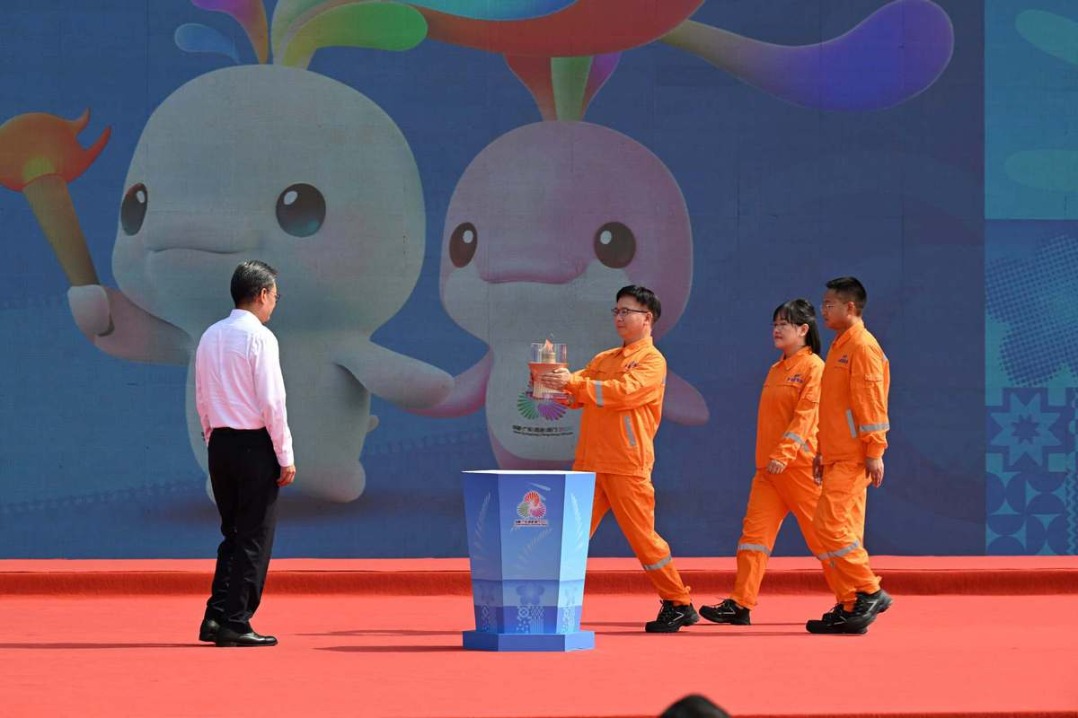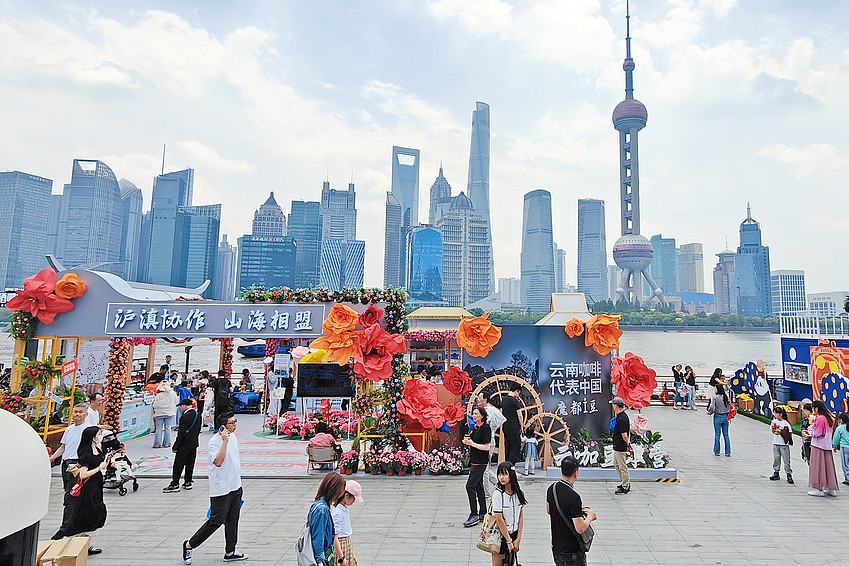Nation playing key role in world hydropower market
China's installed capacity accounts for over half of all new capacity additions worldwide last year


China is expected to remain the world's largest hydropower market through 2030, fueled by significant domestic investment and the expansion of Chinese firms into developing nations, industry experts and executives said.
The world's second-largest economy has been leading the world in installed hydropower capacity, accounting for over half of all new global hydropower capacity additions last year, the International Hydropower Association said in a report released recently.
IHA said global hydropower capacity grew by 24.6 gigawatts last year, with China contributing 14.4 GW, or nearly 60 percent of the total, cementing its position as a global leader in hydropower development.
Pumped hydro storage accounted for more than half of China's hydropower capacity growth, with new capacity reaching 7.75 GW, it added.
China has over 91 GW of pumped hydro projects under construction and is expected to surpass its original target of 120 GW by 2030, according to the IHA. With an additional 136 GW of pumped hydro storage capacity planned, China is poised to accelerate its development in this sector, the association said.
As Chinese hydropower companies significantly expand their presence in emerging and developing nations, particularly through the Belt and Road Initiative, the country is expected to play a bigger role in the global hydropower market, analysts said.
Driven by the growing domestic hydropower sector and higher demand for energy in these developing countries, Chinese firms are increasingly involved in building, financing, and owning a large percentage of new hydropower projects in regions like Africa, Southeast Asia and Latin America, said Lin Boqiang, head of the China Institute for Studies in Energy Policy at Xiamen University.
The Belt and Road Initiative provides a framework for Chinese investment and development projects, including hydropower, in many emerging and developing countries, he said.
"As many developing nations are seeking reliable and affordable energy sources, hydropower is seen as a potential solution. On the other hand, Chinese State-owned banks and other financial institutions play a crucial role in financing these projects."
China Three Gorges Corporation, for example, has been consistently focusing on overseas hydropower projects, particularly in South Asia, Southeast Asia, Africa and Latin America.
CTG's overseas arm, CTG International, has expanded its operations across five continents, boasting over 19 million kilowatts of installed capacity.
Karot Hydropower Station, for example, a priority project for energy cooperation under the China-Pakistan Economic Corridor and operated by CTG, now boasts a total installed capacity of 720 megawatts and generates an annual average of 3,200 gigawatt-hours of clean electricity, meeting the power needs of over 5 million people.
While expanding its global footprint, China is also heavily investing in domestic hydropower, particularly pumped hydro storage, to support its energy transition.
China announced recently the construction of a hydropower project in the lower reaches of the Yarlung Zangbo River, which will consist of five cascade hydropower stations with a total investment estimated at around 1.2 trillion yuan ($167.8 billion).
By harnessing the abundant hydropower resources of the river, the project will also spur the development of solar and wind energy resources in surrounding areas, creating a clean energy base featuring a complementary mix of hydro, wind and solar power.
The hydropower project will primarily deliver electricity for external consumption while also addressing local demand in the Xizang autonomous region.
China also boasts the world's largest clean energy corridor, which comprises six mega hydropower stations on the Yangtze River, the longest river in China, with a total installed capacity of 71.7 million kW.
Comprising 110 generating units, it transmits electricity from the resource-rich west to energy-consuming regions in the eastern parts of China.
The corridor achieved a record-breaking annual power generation of 295.9 billion kilowatt-hours last year, representing a year-on-year increase of 7.11 percent, equivalent to saving approximately 89.24 million metric tons of standard coal and reducing carbon dioxide emissions by over 240 million tons, according to China Yangtze Power Co Ltd, a subsidiary of CTG.
A research report by Guosheng Securities pointed out that Xizang has approximately 200 million kW of hydropower resources, accounting for nearly 30 percent of the country's total, ranking first in the country.
Analysts believe that China's continued investment in pumped hydro storage stations is becoming a crucial means of maintaining grid stability during its energy transition.
























